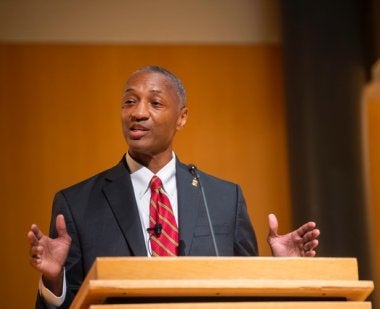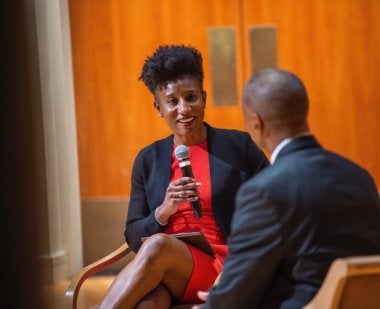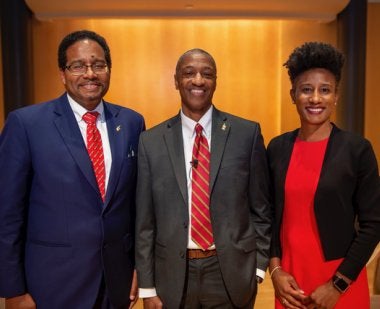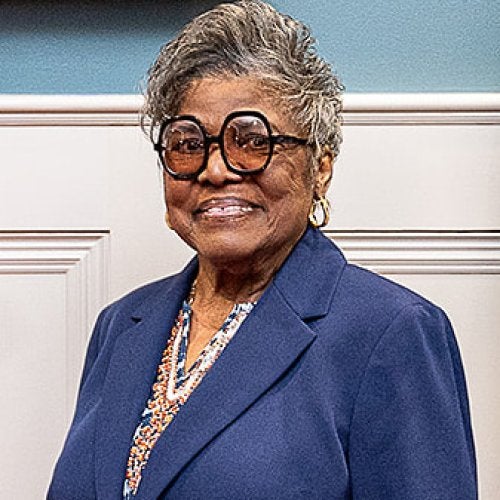
On September 28, in a packed recital hall at The Clarice Smith Performing Arts Center, William F. Tate IV Ph.D. ’91, president of Louisiana State University, took the stage to discuss the relationship between geography and opportunity. Tate’s lecture, titled “From Prenatal to the Block: Reimagining the Geography of Opportunity,” explored the role geography plays in creating educational opportunities.
“We live and experience the world in neighborhoods,” explained Tate, guest speaker for the University of Maryland College of Education’s Dean’s Lecture Series. “Where we live plays a huge part in the opportunity structures available to us.” He contended that a person’s zip code can determine whether they attend college. In rural and urban neighborhoods, for example, people are more likely to experience poverty, food insecurity, healthcare disparities, and education inequities. These are factors that contribute to high school suspension and dropout rates.
Tate made the point that educational attainment benefits communities and society at large. A college degree drives income mobility, which strengthens family stability, builds social capital and creates high performing schools. Despite the clear benefits of obtaining a college degree, he shared that there about 30% of Marylanders who have never attended college. Tate challenged higher education institutions to reach students who have been considered “hard to find.” “We know exactly where they are,” he said, proposing a mix of solutions to not only help students achieve academic success but to impact communities as well, including improving methods for teaching math and science, establishing long-term investments in public policy and partnering with ag extension to increase access to education. Noting the proliferation of public-private investments for everything from sports arenas to toll roads, he also suggested identifying public-private partnerships that support brain development.
College of Education Dean Kimberly Griffin summed up the lecture, “He challenged and inspired us to go beyond the negative instinct and simple, untested equity interventions to build ‘brain regimes’ that serve students in holistic ways.”
The University of Maryland College of Education is grateful for the Clarvit Family's generous support of the Dean's Lecture Series on Education and Society.





